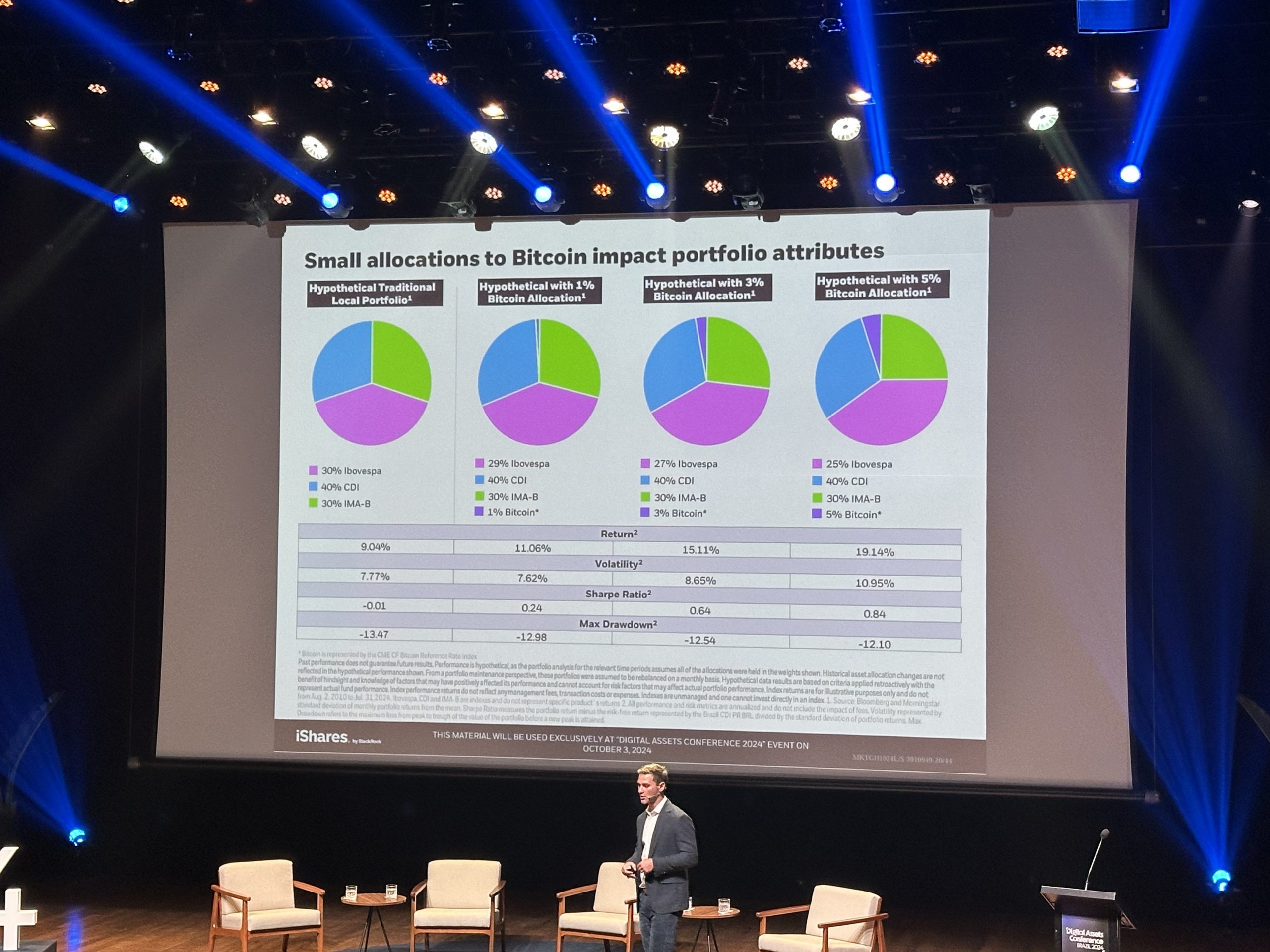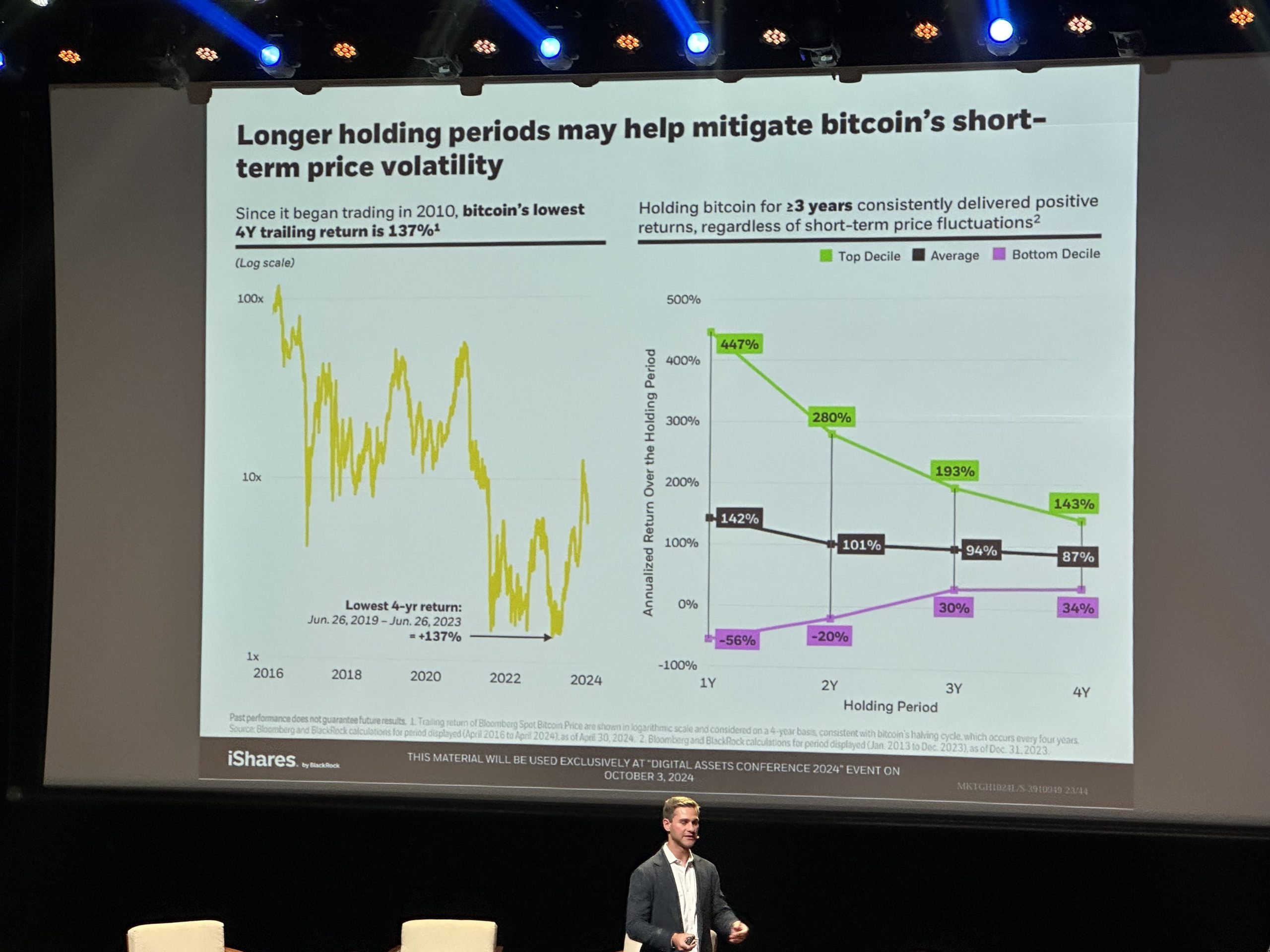Key takeaways
- BlackRock data shows that Bitcoin allocations in portfolios can significantly outperform traditional investments.
- BlackRock emphasizes Bitcoin’s role as a hedge against the fiat currency’s decline.
Share this article
At the Digital Asset Conference today, BlackRock revealed its latest insights into Bitcoin’s volatility and future performance, stating that Bitcoin’s volatility has decreased significantly and will continue to do so over time.
BREAKING NEWS: BITCOIN VOLATILITY HAS DECREASED AND WILL CONTINUE FALLING – BLACKROCK pic.twitter.com/iCWafcyLyD
– marty (@thinkingvols) October 3, 2024
BlackRock, the world’s largest asset manager, emphasized Bitcoin’s changing role in the global financial ecosystem. According to BlackRock, Bitcoin’s volatility has been steadily declining, a trend the company expects to continue as adoption grows and the asset matures.
BlackRock data showed that adding Bitcoin to portfolios improved risk-adjusted returns over multiple time horizons. Portfolios with a 1%, 3%, or 5% Bitcoin allocation saw higher returns over one-, two-, five-, and ten-year periods compared to traditional portfolios.


While Bitcoin slightly increased volatility in these hypothetical portfolios, the potential for higher returns often outweighed the additional risk. For example, portfolios with a 5% Bitcoin allocation achieved a 19.1% return over the long term, significantly outperforming the 11% return of traditional portfolios with no Bitcoin exposure.
BlackRock’s analysis also emphasized the importance of long-term holding when it comes to Bitcoin volatility. According to the company, Bitcoin’s lowest four-year trailing return remains an impressive 137%, and holding the asset for three or more years has consistently generated positive returns.


Additionally, BlackRock compared Bitcoin to gold and US Treasuries, emphasizing its fixed supply, decentralized governance, and low correlation with traditional assets, positioning it as a hedge against declining trust in governments and fiat currencies.
Additionally, BlackRock noted that while Bitcoin’s volatility remains high, it has decreased as the asset has matured. The analysis showed Bitcoin’s low correlation with gold (0.1) and the S&P 500 (0.2), highlighting its role as an independent asset class.
Lastly, BlackRock emphasized Bitcoin as a hedge against the decline in the value of fiat currencies, especially the US dollar. Highlighting the dollar’s decline since 1913, they positioned Bitcoin as a safeguard against inflation. By offering Bitcoin ETFs, BlackRock demonstrates its confidence in the long-term value of Bitcoin and its growing role in financial markets.
Share this article
Disclaimer:
The information contained in this post is for general information purposes only. We make no representations or warranties of any kind, express or implied, about the completeness, accuracy, reliability, suitability or availability with respect to the website or the information, products, services, or related graphics contained on the post for any purpose.
We respect the intellectual property rights of content creators. If you are the owner of any material featured on our website and have concerns about its use, please contact us. We are committed to addressing any copyright issues promptly and will remove any material within 2 days of receiving a request from the rightful owner.

